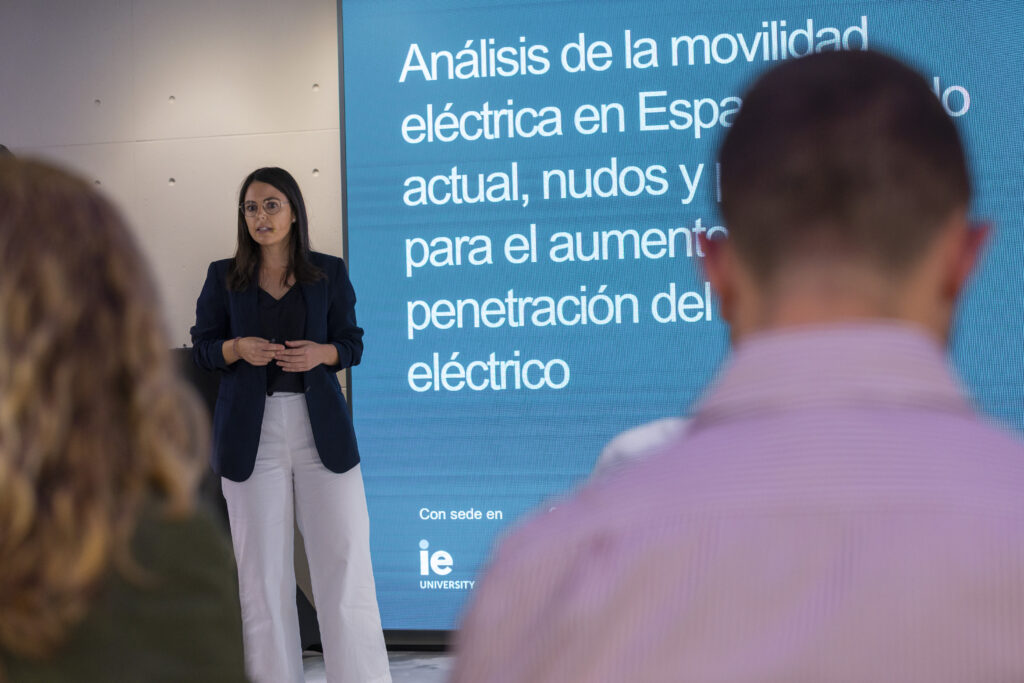Home / Alinnea showcases the Electric Vehicle Working Group’s recommendations at European Mobility Week

In the context of European Mobility Week, on Monday 22 September alinnea was invited to take part in a new session of the Mobility Institute Talks series, convened by the Mobility Institute and dedicated to analyzing the current situation of electric vehicles in Spain and the main challenges for their development.
To set the stage, Gemma Bedia, Senior Project Manager–Climate Change at alinnea, presented the key findings of the report Analysis of Electric Mobility in Spain: Current Status, Challenges, and Proposals to Increase the Penetration of Electric Vehicles, which compiles the conclusions of the working group on electric vehicles led by alinnea.
During her presentation, she shared with the audience the set of key recommendations emerging from the group of experts, including:
Reforming support schemes, replacing subsidies with direct aid and simplifying administrative procedures.
Developing a comprehensive charging infrastructure plan with nationwide coverage.
Implementing a tax reform that includes VAT reduction and an emissions-based fiscal system.
She also stressed the need to introduce tools such as social leasing or electric carsharing to facilitate access to sustainable mobility for currently excluded groups, as well as launching a shock plan to incentivize the electrification of corporate fleets. As cross-cutting elements, she highlighted the importance of improving inter-institutional coordination, strengthening dialogue with the private sector, and enhancing communication with citizens to dispel myths surrounding electric vehicles.
Following this presentation, a roundtable discussion moderated by Jordi Casas, coordinator of the Mobility Institute, took place. In her intervention, Marta Morera, Director General of Energy of the Government of Catalonia, underlined the need to prioritize charging infrastructure, noting that “the network has been the great forgotten element in recent years.” She also pointed out that channeling Next Generation EU funds through subsidies was not the most appropriate approach, and argued in favor of tax incentives as a more effective solution. Pablo Samaura, Head of Corporate Mobility Management at Endesa, acknowledged that the current network is saturated and called for a long-term vision based on public–private collaboration, citing Portugal and Germany as reference models. Nevertheless, he offered an optimistic reflection: “There are numerous opportunities, and Spain has the potential to become a leader in renewables.” Finally, Joan Rius, Head of Marketing at BYmyCAR Barcelona, emphasized the need to improve communication with consumers, noting that the lack of information and coordination has generated mistrust. He defended the importance of having well-prepared sales teams capable of addressing consumer concerns and of offering test drives as a fundamental step to building trust in electric vehicles.
The event concluded with a lively discussion among participants, which touched on issues such as the installation of charging points in private garages, the challenges facing the second-hand electric vehicle market in Spain, technological advances in charging systems and battery quality, and the impact of vehicle size on parking capacity.